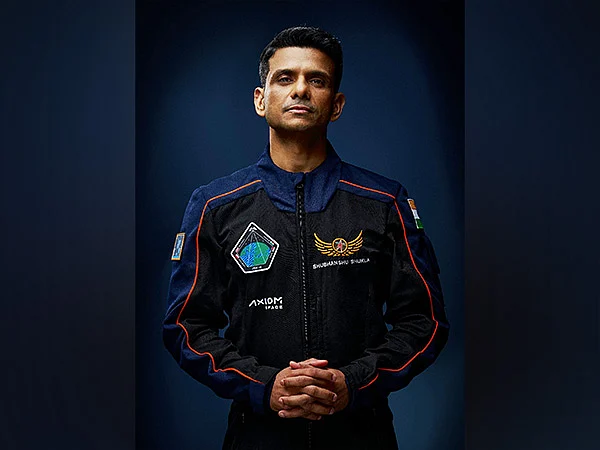New Delhi: Wing Commander Shubhanshu Shukla, an Indian Air Force (IAF) officer who was recently chosen as the 'Prime' astronaut for Indian Space Research Organisation's (ISRO) Gaganyaan mission, has been selected as the pilot for Axiom Mission 4 (Ax-4), scheduled for Spring 2025.
The Ax-4 mission will be commanded by former NASA astronaut Peggy Whitson, Axiom Space's director of Human Spaceflight. The two mission specialists are ESA project astronaut Slawosz Uznanski-Wisniewski from Poland and Tibor Kapu from Hungary.
The Ax-4 mission will "realise the return" to human spaceflight for India, Poland, and Hungary, with each nation's first government-sponsored flight in more than 40 years.
Shubhanshu Shukla will be India's second astronaut to go to space and the first since Rakesh Sharma's epic voyage in 1984.
Shukla's journey began when he was commissioned into the IAF fighter wing in June 2006. As a combat leader and seasoned test pilot, he has 2,000 hours of flight experience across various aircraft, including the Su-30 MKI, MiG-21, MiG-29, Jaguar, Hawk, Dornier, and An-32. His rose to the rank of group captain in March 2024.
In 2019, Shukla received a call from ISRO. He embarked on rigorous training at the Yuri Gagarin Cosmonaut Training Centre in Star City, Moscow, Russia for a year-long preparation.
On February 27, 2024, Indian Prime Minister Narendra Modi announced Shukla as one of the elite astronauts undergoing intensive training for India's maiden human spaceflight mission, Gaganyaan, scheduled for launch in 2025.
In August 2024, Shukla was selected as the 'Prime' astronaut for the upcoming Indo-US mission to the International Space Station (ISS). Group Captain Prasanth Balakrishnan Nair was selected as the 'Backup' astronaut.
The Gaganyaan project envisages the demonstration of human spaceflight capability by launching a crew of 3 members to an orbit of 400 km for a 3-day mission and bringing them back safely to earth by landing in Indian sea waters.
India's space sector has experienced significant growth and achievements over the past year, marking a new era of innovation and exploration.
From the successful Chandrayaan-3 lunar landing to the launch of the Aditya L1 Solar Mission, ISRO has demonstrated its capabilities on the global stage. The organisation has also made strides in its Gaganyaan human spaceflight programme, conducted critical tests for reusable launch vehicles, and expanded its satellite portfolio with missions like XPoSat and INSAT-3DS.
On January 29, ISRO successfully launched their GSLV-F15 carrying the NVS-02 on 6:23 AM at Sriharikota, Andhra Pradesh. This was ISRO's 100th launch from the country's space port. Furthermore, the country has laid out ambitious roadmaps for lunar exploration and human spaceflight, including plans for an Indian space station by 2035.
Sign up for the Daily Briefing
Get the latest news and updates straight to your inbox
Network Links
GN StoreDownload our app
© Al Nisr Publishing LLC 2026. All rights reserved.
